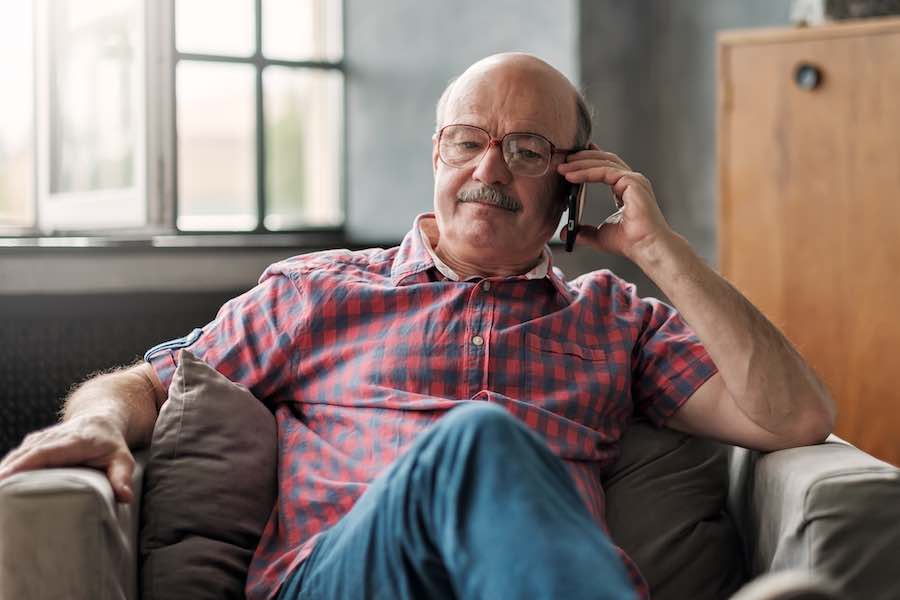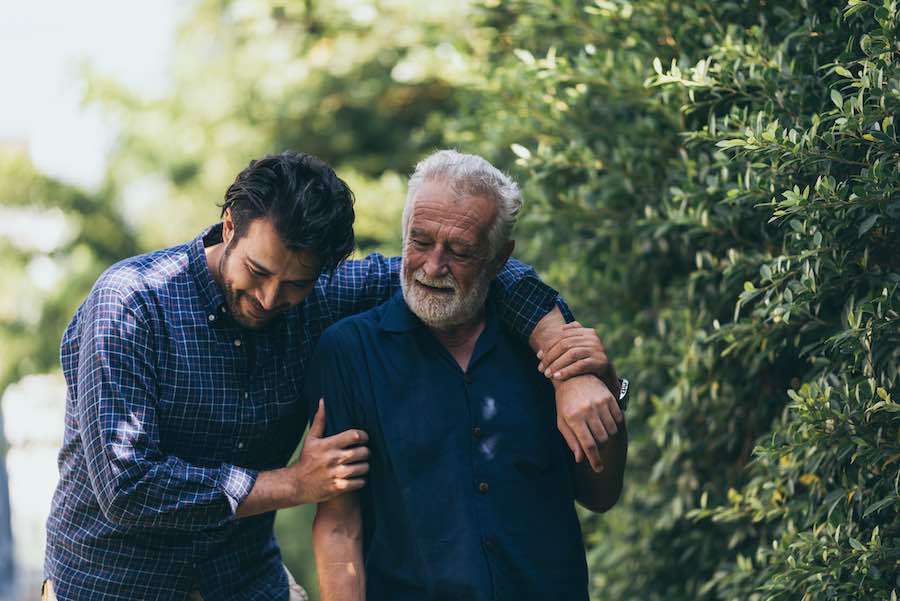Conflict between family members can make the hospice care experience feel especially difficult. Each family has a unique dynamic. When a loved one begins receiving hospice care, talking to estranged family members may be stressful due to factors such as:
- Feelings of grief as the loved one nears their end of life
- Disagreements over the plan of care
- Family history or past conflicts
- Guilty or regretful feelings about one’s relationship to the patient
- Miscommunication or speculations about the loved one’s hospice care experience
In many cases, there is one family member who acts as the main point of communication and decision-making on behalf of the patient receiving care. This person typically lives geographically close to their loved one and is able to gather the resources they need to participate in the plan of care. This usually means that they have the responsibility to communicate with the extended family to inform them and invite them to participate as well. If it sounds like this is your role, take a deep breath. When faced with speaking to distant family members, know that there are resources and support to help.

When a patient receives care through Envision Hospice, our team is there to support the family too. Here are some tips on how to move on from family estrangement, and move toward finding common ground.
How Does Family Estrangement Relate to Hospice Care?
When a loved one nears the end of their life, their family may experience a variety of feelings and thoughts about it. Unresolved conflicts from the past may arise between siblings or in parent/child relationships. The loved one’s gradual decline may make it more difficult to communicate with them, leading to more distant relationships. Family members may begin to reflect on their experiences with their loved one and feel grief, love, sorrow, or regret.
Commonly, family members have diverse opinions on hospice care. It can be hard to help family members understand the benefits of comfort care near the end of life.
Alternatively, distance between family members can also be bridged through this experience. Some families experience a bonding they’ve never had before. Working together to participate in a loved one’s end-of-life care can strengthen relationships and heal old wounds. This kind of healing and bonding can take place when families know that they’re providing the best possible care for their loved one.
How Family Bonds Can Be Strengthened
First of all, it is important to expect a variety of responses and emotions from your family when discussing hospice care. Throughout the course of end-of-life care, the patient and their families go through deep waves of feelings and thoughts. Finding common ground as a family can help to calm these waves of emotions.

But how can you find common ground when you have family estrangements? Here are some ideas for how to move on from them and work together as a team.
- Spiritual care: Having a chaplain present to facilitate conversations can bring about healing between family members. Chaplains or ministers can not only help the patient process this unique time, but their family members as well.
- Invite your family members to be involved in the hospice care experience. Offer to bring them to your loved one’s facility (if they are receiving care at a facility) or show them their home care environment.
- Encourage them to interact with your loved one’s care team. Invite them to ask any questions they have. If your family members live far away, invite them to participate in visits through video calling or phone calling. Share the facility’s website with them, and highlight what stands out to you about their services.
- Share the information you have about your loved one’s needs, and explain how their plan of care will meet those needs. Then, welcome suggestions and ideas on how to increase the loved one’s comfort. Working together as a team can strengthen the relationship.
- Reflect on positive memories together and work toward resolving past conflicts. Many families find it possible to do this when they find common ground through caring for their loved one.
While it may feel difficult and vulnerable to connect with estranged family members, it is wise in most cases to bring your family together for the benefit of everyone involved. When a loved one is nearing the end of their life, it takes a toll on the people who love them. Coming together during this time can yield powerful results for the family and the best possible care for the loved one.
At Envision Hospice, we care about helping families find healing through their loved one’s end-of-life period. If you are looking for information about hospice care, or are in need of support during this difficult time, our team is here for you. Please call us at (915) 265-0051 anytime.

